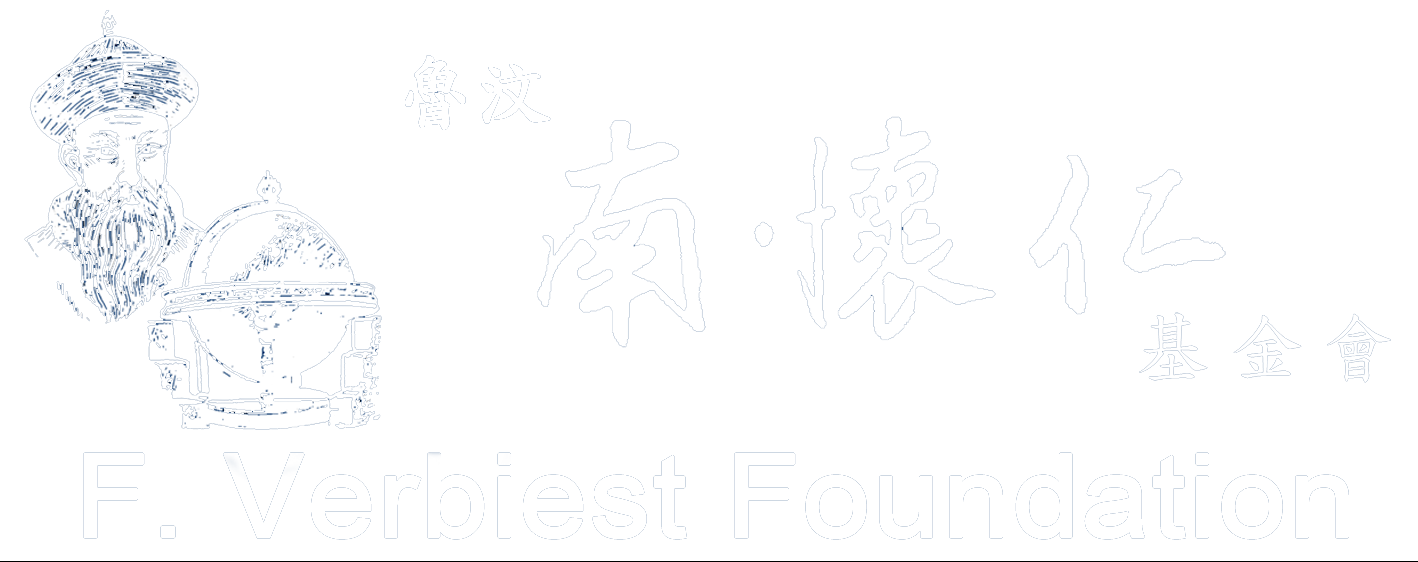
This academic symposium held at the Institute of Catholic Studies of Fu Jen Catholic University follows the 2022 "Braving the Red Sea" conference that deepened into the many ways the different religious orders that crossed the strait used to start their journey in Taiwan after 1949. This time, the symposium focused on the early CICM missionaries who came to northern and central Taiwan and some key definitive aspects of their congregation, like the spirituality and the missionary thrust that characterize them.
The keynote speaker was Fr. Andre De Bleeker (CICM), director of the archives of the Congregation of the Immaculate Heart of Mary in Rome. It was precisely because of Fr. De Bleeker's work that the content of his speech "Theophile Verbist: His life and Missionary Vision" is of particular historical value. Father De Bleeker unearthed many first-hand information about founder Theophile Verbist from the archives, which can provide later scholars with a more solid foundation for deeper discussions.

In 1865, after several years of preparations and increasingly frustrated applications, Theophile Verbist finally set foot on Chinese territory and based in Xiwanzi evangelized this place and the surrounding entrusted areas. Within three years, they received a terrible news: this foreign missionary had died of Typhus. This event was a huge blow for such a young religious order. It was almost facing the fate of disbandment. Fortunately, two capable confreres took over the congregation helm as general superior, which steadied the young congregation and reversed the situation of disintegration it was facing. They laid the foundation for future development and expansion, and further deepened the roots of the development of their mission in China and their support in the formation of local churches. This is what Fr. Patrick Taveirne (CICM), historian of the Congregation of the Immaculate Heart of Mary, presented in his paper “The CICM “risorgimento” after Verbist’s demise -the contributions of Frs. J. VanAertselaer & J. Rutten”. His research work not only supplements our understanding of the early development of CICM, but it is also an important reference experience for all missionary organizations when facing crises.

Then came the highlight of the day's meeting, the flute performance by Father Frans De Ridder (CICM), as well as other auxiliary props of his presentation. For example, he showed his collection of Chinese calligraphy scrolls, one of which was “Enlightenment” and another one was “To grasp how wide and long and high and deep is the love of Christ.”
The title of Father De Ridder's speech was “A country with a missionary culture will produce missionaries”. In his talk he shed light on the vocation cultural roots of the CICM founder as well as his own, while illustrating it with vivid examples from his evangelization experience. It was interesting and thought-provoking. Before lunch, all nearly 90 participants took a group photo as a memento. In the afternoon, the meeting focused on other relevant aspects of the CICM congregation. First, Dr. Wong Yee Ying (postdoctoral researcher at Academia Sinica’s Institute of Modern History,) introduced the great evangelization plan the CICM had devised, in the middle of the last century, after the victory of the Anti-Japanese War. The highlight of this plan was the core of Dr. Wong’s presentation: "Beijing Verbist Academy: A Blueprint for the CICM’s Cultural Apostolate". Although, later, the plan could not be fully implemented due to deep changes in the Chinese political situation, the admirable evangelization spirit it showed rippled into CICM’s future ministry in Taiwan.

With the changes in the political situation, most of the religious were expelled from mainland China in the early 1950s and moved their mission to Taiwan. The CICM also came to Taiwan during this period to establish anew their missionary base, and such endeavor, taking care of many catechumens and new believers, needed a large amount of money to be accomplished. Father Ivo Stuyck seized this opportunity and was able to raise a large amount of funds from the American society, with remarkable results. The achievements of CICM father Ivo Stuyck as the financial helmsman of the mission in Taiwan was the core of Professor Chen Fangzhong’s presentation (Department of History Professor and Dean of the College of Liberal Arts, Fu Jen University, and Chairman of the Chinese Verbiest Cultural Exchange Association): "Father Ivo Stuyck: The Financial Helmsman of the CICM in Taiwan".
The last paper of this conference was presented by Hong Li-Xing, associate research fellow at Academia Catholica, Fu Jen Catholic University, entitled "The Contribution to Sacred Music of Scheut Missionaries in China" This highly specialized article presented how musically talented members of the Congregation of the Immaculate Heart of Mary who went to China in the early days, introduced traditional Gregorian Chant in creative dialogue with local Chinese musical elements, style and appearance, helping to build up the Chinese Catholic sacred music corpus.

This meeting will help us to understand the Congregation of the Immaculate Heart of Mary, its founder Theophile Verbist, and the development of this Congregation over the past hundred years. Leuven Ferdinand Verbiest Foundation will continue to work hard to fulfill Verbist’s last wishes: Never forget the original intention, to evangelize China.
This Conference was co-organized by Ferdinand Verbiest Foundation Leuven,
Fu Jen Academia Catholica, Congregation of the Immaculate Heart of Mary (CICM) Asia Province Sino-Mongol District (SM)
Fu Jen Academia Catholica, Congregation of the Immaculate Heart of Mary (CICM) Asia Province Sino-Mongol District (SM)

